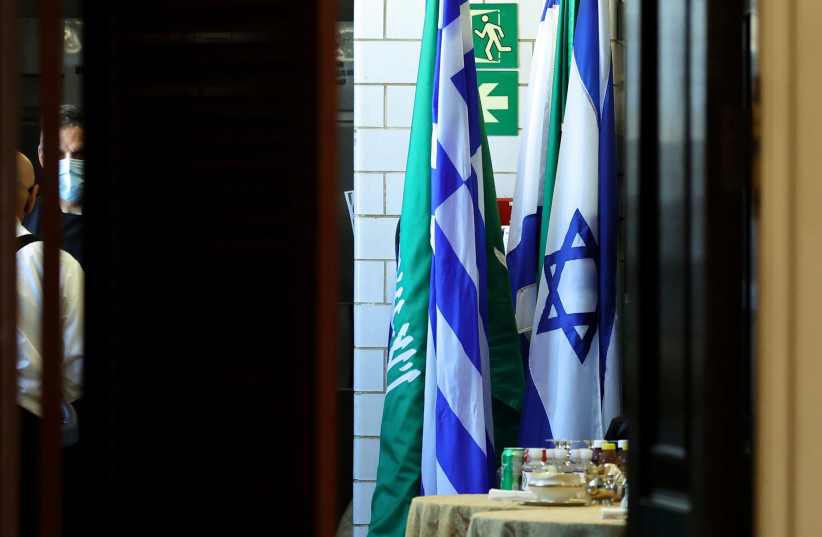US President Joe Biden is mulling a mutual security pact with Riyadh that would include an Israeli-Saudi normalization deal, New York Times's Thomas Friedman wrote in a column published Thursday.
The deal would force Prime Minister Benjamin Netanyahu to choose between his extremist government and regional peace, Friedman wrote.
Biden’s national security adviser Jake Sullivan the top White House official handling Middle East policy arrived in Saudi Arabia on Thursday “to explore the possibility of some kind of US-Saudi-Israeli-Palestinian understanding,” Friedman pointed out.
“Sullivan is not in Riyadh today for tourism,” he noted.
He based his column on the conversation he held with Biden last week in the White House.
The suggested security pact and subsequent normalization between Israel and Saudi Arabia, Friedman explained, are subject to concessions made by Israel on preserving the possibility of a two-state solution with the Palestinians.

While Biden is still undecided over whether to pursue the pact, he had given the order to explore the possibility of a quadrilateral understanding between the US, Israel, Saudi Arabia and the Palestinians, NYT said.
Such a deal would require a hefty price tag, Friedman worth, as the Saudis want a NATO-level mutual security treaty by which the U.S. would come to Saudi Arabia’s defense if it is attacked, most likely by Iran.
Riyadh also wants a “civilian nuclear program, monitored by the U.S” and “the ability to purchase more advanced U.S. weapons,” he explained.
The US, in exchange, wants an end to the fighting in Yemen, curbs on Saudi-Chinese ties and significant Saudi financial assistance to the Palestinians, Friedman said, adding that Israel would have to make concessions that would preserve the possibility of a two-state resolution to the conflict, he wrote.
Friedman was short on details with respect to the price Israel would have to pay for such a deal, but he suggested that it pledge to never annex portions of the West Bank.
Israel had already agreed in 2020 to suspend the application of sovereignty to West Bank settlements in exchange for the Abraham Accords under whose auspices the Jewish state agreed to normalize ties with four Arab states: the United Arab Emirates, Bahrain, Morocco and Sudan.
Frieman also suggested that Israel should be asked not to build new West Bank settlements or to authorize outposts. In addition, he wrote, Israel should transfer portions of Area C, which is under IDF military and civilian control, to Areas A and B of the West Bank which is under the Palestinian Authority’s auspices.
Such a deal would force the extremists in Netanyahu’s government to moderate themselves or force the Prime Minister to abandon them, Friedman suggested.
He noted that moving forward with an Israeli-Saudi deal without a significant gesture to the Palestinians would be difficult given the makeup of the existing Israeli government.
“If the Biden team made a deal without a significant Palestinian component, it would simultaneously strike a death blow to the Israeli democracy movement — by giving Netanyahu a huge geopolitical prize for free after he just did something so antidemocratic — and to the two-state solution, the cornerstone of U.S. Middle East diplomacy,” Friedman wrote.
“I don’t believe Biden will do that. It would spark a rebellion in the progressive base of his party and make ratification of the deal well nigh impossible,” he said.
Netanyahu: Israel, US working on Saudi peace deal
In an interview with ABC published Thursday Netanyahu dismissed the idea that the Knesset passage of the first phase of his judicial reform plan, which the US opposes, would harm regional diplomatic efforts.
Israel and the US “are working on things that will change history, specifically, we are trying to block Iran’s aggression and advance peace with Saudi Arabia,” Netanyahu said.
“This will change the world. This will be a pivot of history,” he said, adding that “the relations with the US are as strong as ever.
Jerusalem Post Staff contributed to this report.
